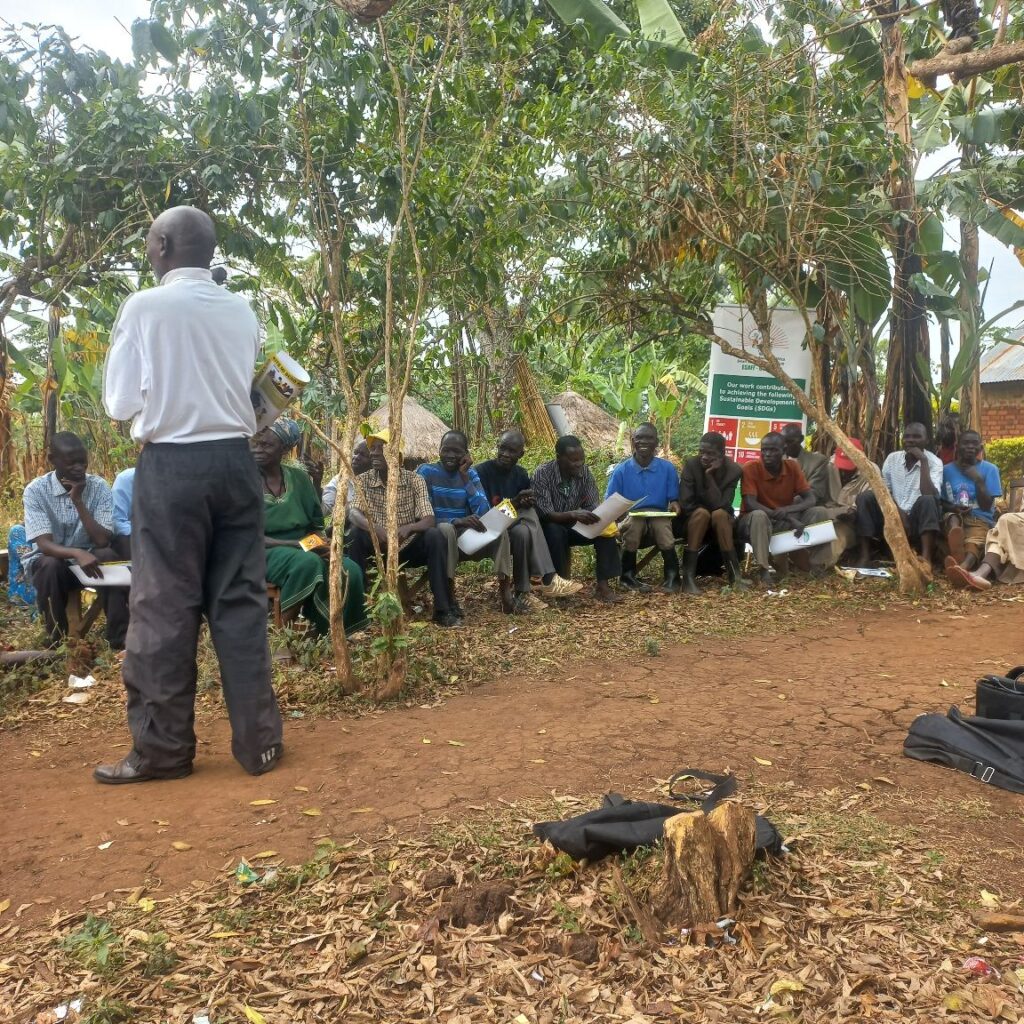Women are witnesses in Land matters
Women are not supposed to own land in our culture neither succeeding their parents as heroines. This was during the awareness raising in Pakia Warr sub county in zombo district


In the West Nile region like other parts of Uganda, land rights remain a critical issue affecting the livelihoods and well-being of small-scale farmers. The World Bank report of 2019 highlighted a notable limited awareness and access to critical land rights information, as only 3.3%of the 78% of landholders in the country are knowledgeable about their land rights, responsibilities and able to access relevant information.
Additionally, women small-scale farmers like other marginalized groups have been disproportionately affected, often lacking access to land ownership and facing discrimination in land allocation and inheritance. However, there is a growing hunger for knowledge and awareness about secure land rights as farming communities seek to empower themselves and assert their rights to land ownership, responsible land and investment governance.
Women are not supposed to own land in our culture neither succeeding their parents as heroines. This was during the awareness raising in Pakia Warr sub county in zombo district
Women are not supposed to own land in our culture neither succeeding their parents as heroines. This was during the awareness raising in Pakia Warr sub county in zombo district


The lack of secure land rights has had a profound impact on the small-scale farming communities in the West Nile region. Displacement and land grabbing have disrupted livelihoods, leading to food insecurity and economic instability. Moreover, the absence of legal documentation of customary lands has undermined the traditional land management practices of the local communities, further exacerbating the vulnerability of farmers.
Acknowledging the pressing need to confront these issues, the Eastern and Southern Africa Small-scale Farmers’ Forum (ESAFF) Uganda in collaboration with the Ministry of Lands, Housing and Urban Development in partnership with the District Local Governments of Zombo and Arua, conducted four grassroots community awareness raising events in Pakia and Peiin Warr sub-county in Zombo district, as well as in Zebbu and Okavu parishes in Logiri sub-county, Arua district.
Through the Land Rights Support Centre, farming communities were provided with information materials translated into Lugbar and Alur on the procedures of acquiring CCOs and freehold titles, what the constitution says about women land rights among others. As a result of providing education materials on land rights during the community awareness raising, there was a noticeable appreciation and anxiety for communities’ understanding of land rights among community members.
A widow from Pakia sub county, Zombo District is close to losing her land to her inlaws given that her husband died and the inlaws claim that the land belongs to the husband’s family not the woman. So the woman is being raided away with her children given that the husband died. She was crying out loud for support during the community meeting.
A widow from Pakia sub county, Zombo District is close to losing her land to her inlaws given that her husband died and the inlaws claim that the land belongs to the husband’s family not the woman. So the woman is being raided away with her children given that the husband died. She was crying out loud for support during the community meeting.


This approach yielded significant outcomes, with women accessing legal guidance and support, resulting in an increased understanding of their rights and legal options. As a result, there was a tangible shift in the community's perception of land rights, with an increasing number of women securing their land rights and actively participating in decision-making processes related to land ownership and management.
The hunger for knowledge and awareness about secure land rights in the West Nile region reflects the determination of the local population to empower themselves and protect their land rights. ESAFF Uganda working closely with the Ministry of Lands and Local Governments committed to continue supporting women and marginalized groups in securing their land rights through supporting land registration under Customary Certificates of Ownership(CCOs) and raising awareness, providing information materials, and advocating for policy changes to ensure equal land ownership for all members of the community.

